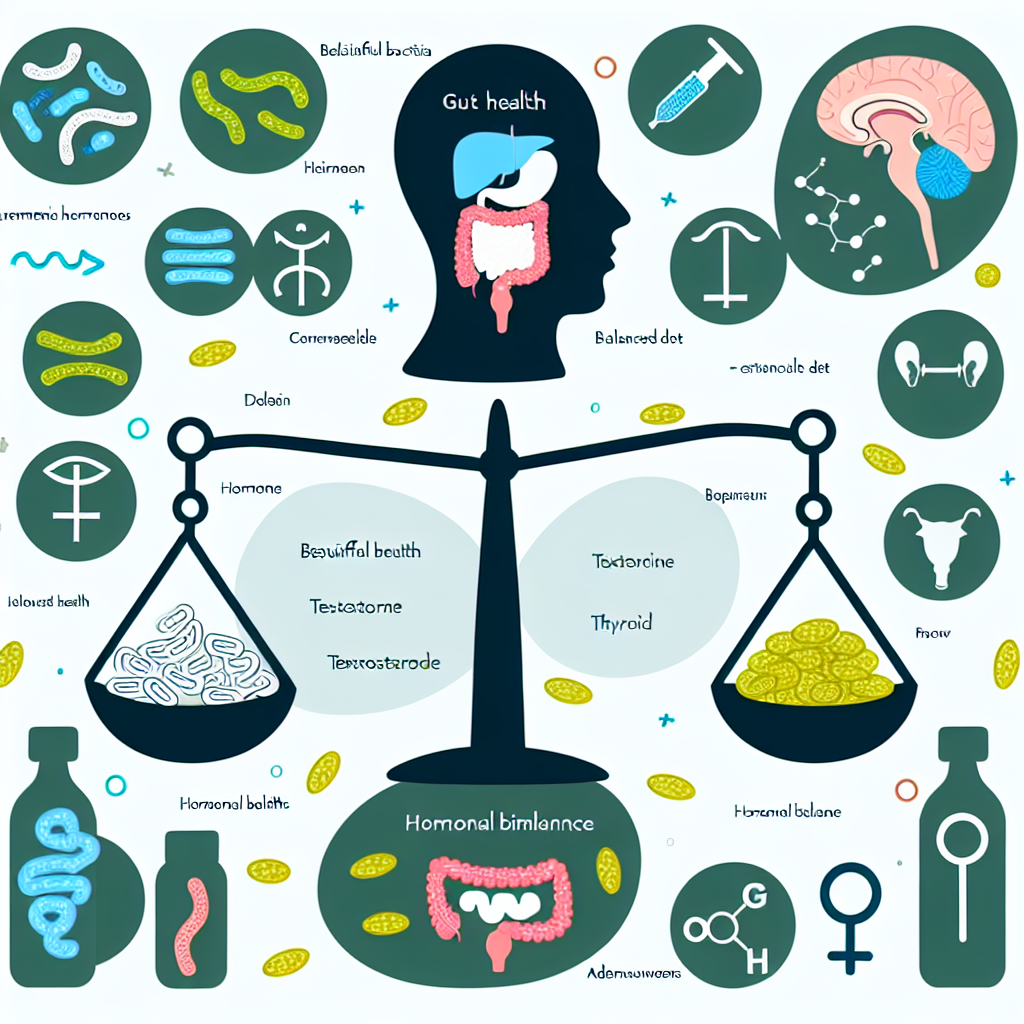Gut Health Connection to Hormonal Imbalance
Introduction
In today’s fast-paced world where luxury is not just about material assets but also holistic wellness, a radiant internal balance is fast becoming the ultimate status symbol. Beyond the realms of skin-deep beauty and physical aesthetics, true vitality radiates from within. One of the most critical and often overlooked aspects of elite well-being is the gut-hormone connection.
While gut health has been buzzing across wellness circles for years, cutting-edge science now reveals a direct link between your digestive wellness and hormonal balance. This connection suggests that everything from your mood and metabolism to your skin luminosity and libido may be influenced significantly by the health of your gut microbiome.
For the discerning customer invested in the ultimate luxury—superior well-being—understanding the gut-hormone coupling is vital. Hormones, those chemical messengers running your physiological show, regulate how we sleep, age, cope with stress, store fat, and experience energy. When out of balance, these messengers can cause a cascade of symptoms—irregular cycles, mood swings, fatigue, digestive issues, and more—that disrupt daily life.
Rather than turning solely to synthetic hormone therapies, many health experts now recommend exploring the root cause—your microbiome. This dense, complex ecosystem of bacteria within the intestines acts like its own endocrine organ, regulating many physiological processes essential for hormonal control.
Your gut isn’t just a digestion facilitator—it’s central to overall wellness. It houses trillions of microbes, many of which help produce and regulate major hormones such as estrogen, cortisol, serotonin, and insulin. When the microbiome is balanced and nourished, it supports robust hormone function. However, an unhealthy gut—known as dysbiosis—can trigger hormonal irregularities, poor detoxification, and impaired signaling across body systems.
This understanding transcends scientific curiosity and is transformative in guiding informed, upscale lifestyle choices. Whether your goal is glowing skin, vibrant energy, longevity, or emotional resilience—optimizing gut health is essential to achieving supreme hormonal wellness. Luxury wellness today isn’t just about spa visits or superfoods; it’s about cultivating an internal ecosystem rich in vitality.
Features: Medical and Scientific Studies on Gut-Hormone Link
Science is increasingly confirming the intricate relationship between the gut microbiome and our hormones. Key published studies are unlocking the mechanisms behind how microbial balance directly influences hormonal health.
One of the most well-studied pathways is the microbiota-estrogen axis. A 2020 study in the journal Endocrinology explains how specific bacteria produce an enzyme called beta-glucuronidase, which affects how estrogens are metabolized and reused in the body. An imbalance in these bacteria can lead to improper estrogen regulation, contributing to conditions such as PCOS, endometriosis, and even breast cancer. Read the full study in the Endocrinology Journal.
Equally compelling is the connection between gut health and mood hormones. The gut produces over 90% of the body’s serotonin, making it a key player in emotional regulation. A 2021 study in Nature Microbiology revealed how a balanced and diverse gut microbiome supports the production of serotonin and dopamine, contributing to reduced symptoms of depression, anxiety, and even PMS. Discover this research from Nature Microbiology.
Another crucial hormone impacted by gut flora is insulin. The way your body processes sugar—and whether you experience insulin sensitivity or resistance—is affected by microbial composition. Research in Cell Metabolism shows that certain gut bacteria help regulate glucose response. Disruption in these microbes contributes to insulin resistance, a hallmark of type 2 diabetes and PCOS. Explore this data in the full Cell Metabolism article.
The gut also significantly impacts cortisol, the body’s chief stress hormone. Chronic digestive inflammation and leaky gut trigger elevated cortisol levels, which in turn suppress other key hormones like thyroid hormone and testosterone. Long-term disruption here may impact weight regulation, fertility, sleep, and energy—a major concern for high-achievers and performance-driven individuals. This relationship is examined thoroughly in the Journal of Clinical Endocrinology & Metabolism.
The growing body of clinical evidence is shifting us toward a new paradigm: when gut health is elevated, hormonal flow returns to its elegant rhythm.
Conclusion
In the realm of luxury living, achieving hormonal harmony is no longer simply a medical endeavor—it’s a lifestyle indulgence. A thriving microbiome fosters not only clearer digestion but also polished confidence, radiant skin, mental clarity, balanced moods, and rejuvenated energy. For the wellness-forward individual seeking excellence in every domain, investing in gut optimization is essential.
Today’s ultimate expression of wealth might be less about what you put on your body and more about what thrives within it. What if your most powerful bio-luxury wasn’t a product or procedure, but the dynamic ecosystem residing in your core? Your path to unparalleled wellness begins with the unseen—the gut.
Concise Summary
Recent scientific studies confirm a vital connection between gut health and hormonal balance. A healthy microbiome influences key hormones like estrogen, serotonin, cortisol, and insulin—regulating mood, metabolism, fertility, and skin health. Dysbiosis, or gut imbalance, contributes to conditions such as PCOS, anxiety, depression, and insulin resistance. By nurturing your gut through diet, lifestyle, and probiotics, you support optimal hormonal function and enhance vitality. For luxury wellness seekers, cultivating internal harmony through microbiome health is a premium strategy for radiant well-being.
References
– Endocrinology Journal. “The Microbiota Estrobolome Axis in Health and Disease.” https://academic.oup.com/endo/article/161/9/bqaa128/5879631
– Nature Microbiology. “Gut Microbiota’s Role in Serotonin Production.” https://www.nature.com/articles/s41564-021-00941-5
– Cell Metabolism. “Gut Microbiota and Insulin Regulation.” https://www.cell.com/cell-metabolism/fulltext/S1550-4131(20)30328-1
– Journal of Clinical Endocrinology & Metabolism. “The Gut-Inflammation-Cortisol Axis: A Vicious Hormonal Cycle.” https://academic.oup.com/jcem/article/100/6/2201/2835908

Dominic E. is a passionate filmmaker navigating the exciting intersection of art and science. By day, he delves into the complexities of the human body as a full-time medical writer, meticulously translating intricate medical concepts into accessible and engaging narratives. By night, he explores the boundless realm of cinematic storytelling, crafting narratives that evoke emotion and challenge perspectives. Film Student and Full-time Medical Writer for ContentVendor.com




